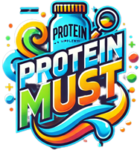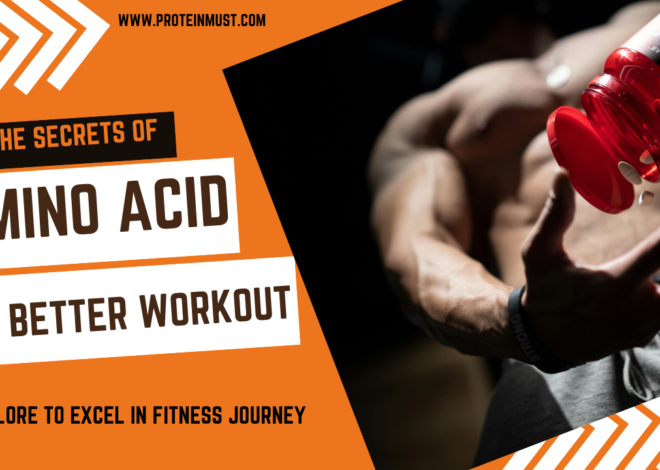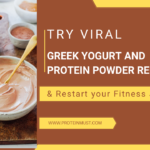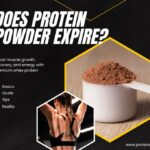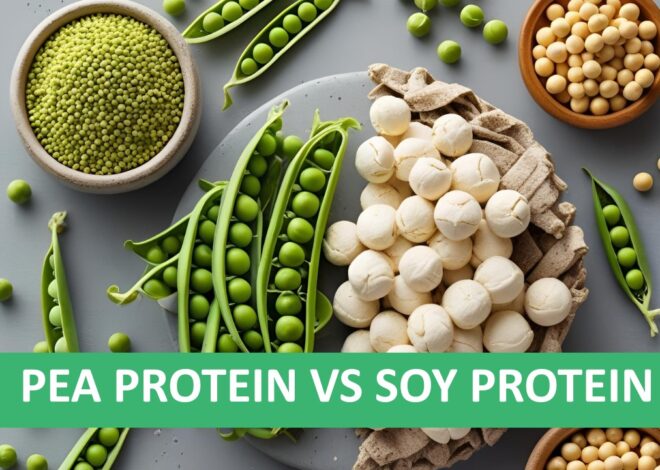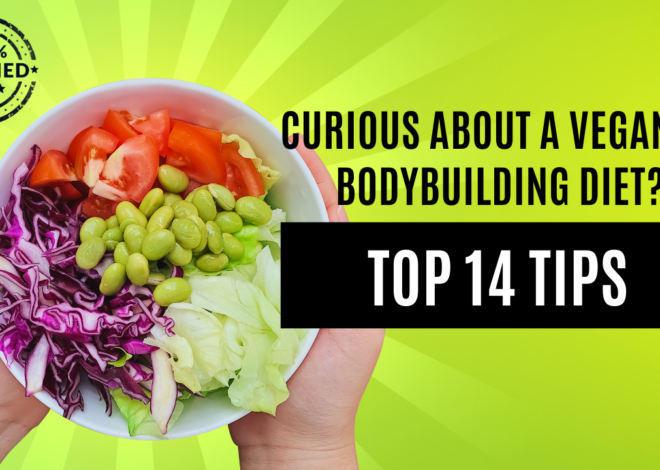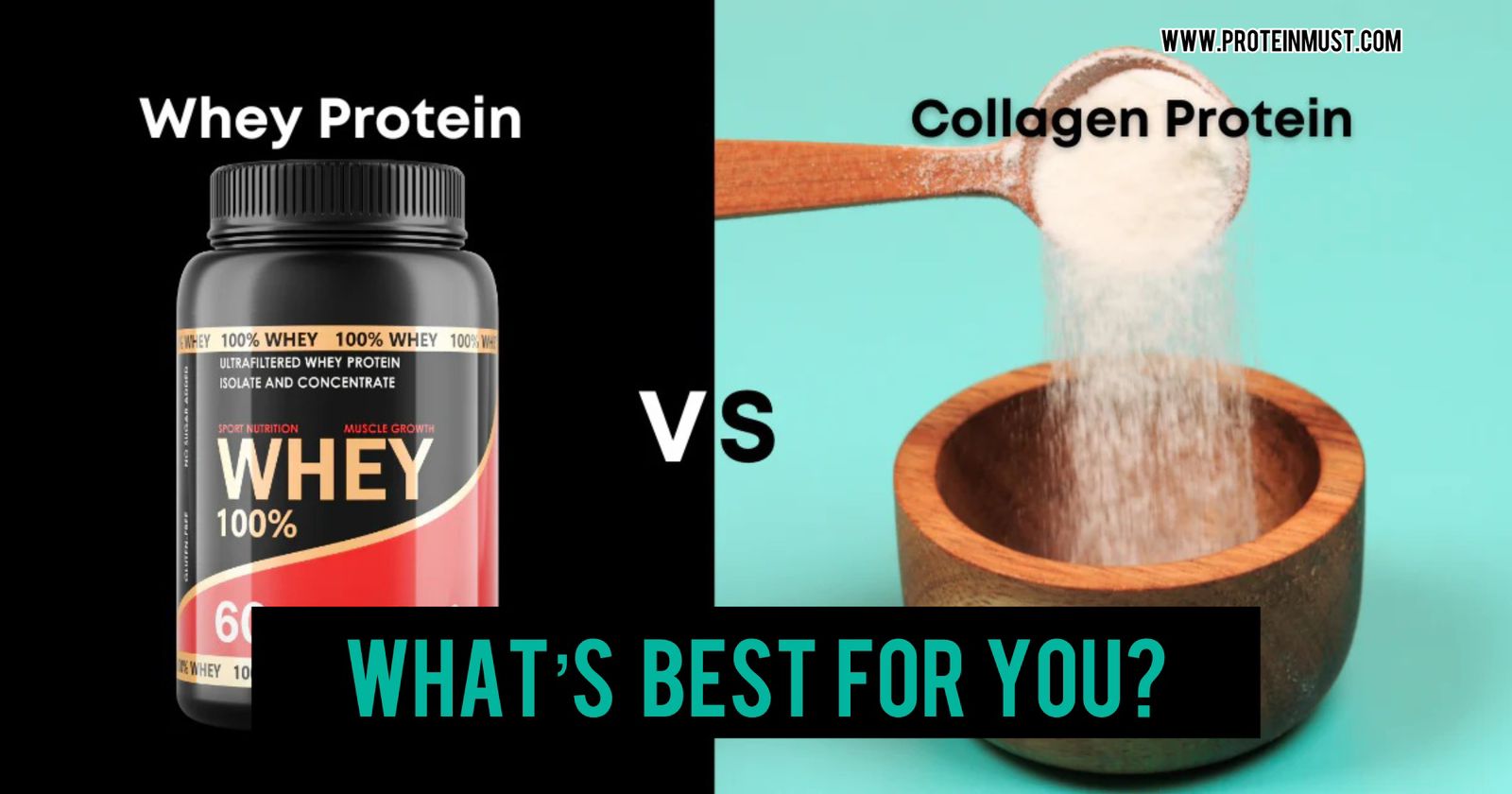
Collagen Peptides vs Protein Powder: What’s Best for You?
From greens to vitamin supplements, each option offers unique benefits. Research shows that collagen supplements may improve skin elasticity, while protein powders support a healthy lifestyle. It’s crucial to identify what fits your needs and avoid wasting cash. As someone passionate about fitness, I’ve found science-backed choices are always worth the hype. Whether you’re working out with your buddy or following your fitness instructor, understanding the benefits of these products ensures smarter, healthier living. Also read Unlock the Secret to Gaining Weight With a Fast Metabolism
Battle of the Supplements: Collagen vs Protein Powder
The good news is that research supports both collagen and protein powder supplements. Whether you’re seeking a radiant glow, muscle support, or overall wellness, these supplements can offer valuable benefits—and sometimes, using both might be the best option. Let’s explore the details of collagen and protein powder to help you understand their advantages and choose the one that fits your lifestyle and goals.
When you’re striving for health and chasing your goals, adding the right supplement to your routine can make a difference. Influencers on TikTok and Instagram often promote collagen and protein powders for glowing skin, muscle support, and overall well-being. These products, popular among celebs and fitness enthusiasts, can enhance your daily routine if chosen wisely.
Collagen peptides versus protein powder
When making a choice, consider your goals, dietary needs, and overall health. For an active lifestyle aiming to build muscle mass and increase strength, protein powder can be the ideal pick. On the other hand, if glowing skin and healthy joints are your priority, collagen supplements might be more suitable. For those who want to support both areas, using a combination of protein powder and collagen is a great option. Remember to evaluate your nutrition and supplement routine carefully and consult your physician or nutritionist before making any changes. This ensures that your choices align with your needs and enhance your lifestyle effectively.
Understanding the concept and Benefits of Both:
What is Collagen?
Collagen peptides are small protein fragments derived from animal sources like bones, skin, and connective tissues, designed for easy absorption by the gut. Many people use them to support skin and joint health, aiming to improve their overall well-being.

How Collagen support our system?
Collagen naturally exists in our bodies, forming connective tissue and providing structural support to our skin. However, as we age, collagen production slows, leading to signs of aging like wrinkles. Additionally, collagen plays a vital role in tissue repair and supporting the immune system.
Health Benefits of Collagen:
Following are some Amazing health benefit of Collagen:
- Collagen is a protein-rich supplement providing approximately 18 grams of protein per 20g serving.
- Unlike beef or milk, its amino acid profile is unique but incomplete, lacking some essential protein building blocks.
- It is abundant in glycine, proline, and hydroxyproline, crucial for maintaining connective tissues such as skin, hair, nails, and bones.
- Emerging research highlights potential benefits like improved joint health, increased bone density, better digestion, and anti-aging effects on the skin.
- While studies continue, collagen powders and liquids offer a convenient way to include these nutrients in your daily routine
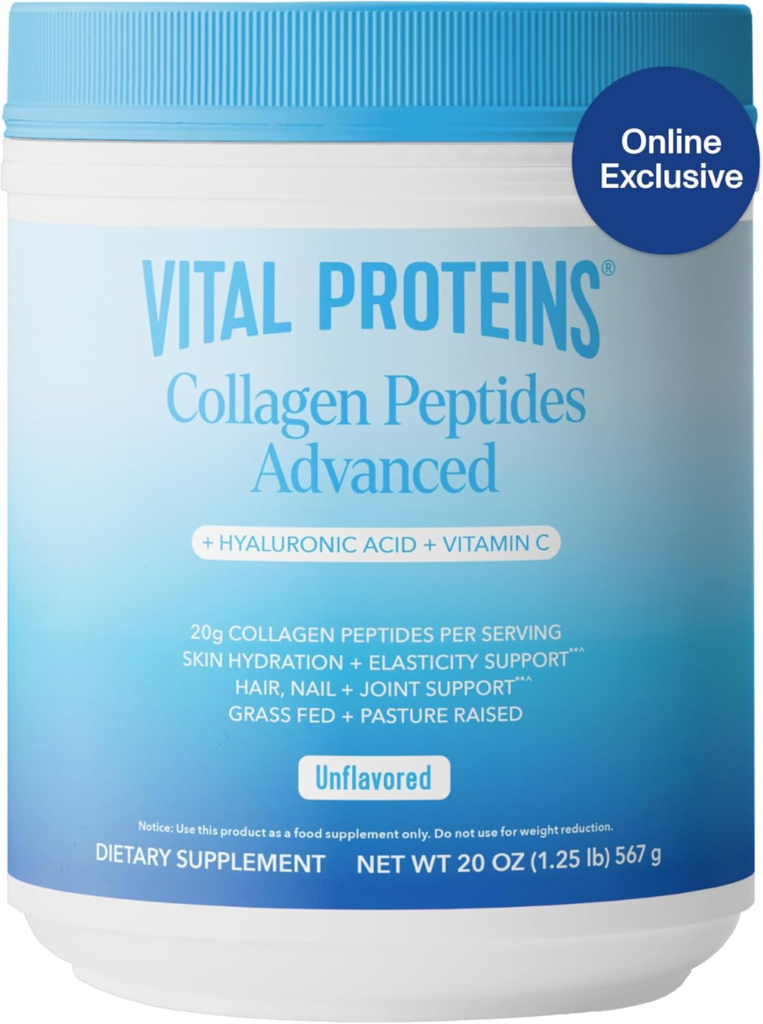
Types of Collagen and Their Benefits
- Type I Collagen
This dense form of collagen makes up 90% of the collagen in your body. It provides structure to your skin, bones, tendons, and ligaments. - Type II Collagen
Primarily found in cartilage, Type II collagen supports tissues that endure compressive forces, such as joints. It’s essential for areas like knees and elbows, where it helps cushion and connect bones. - Type III Collagen
Another structural collagen type, it is abundant in the skin, muscles, arteries, and internal organs, contributing to their integrity and flexibility.
Collagen Sources and Forms
- Animal-Based Collagen
Collagen is typically sourced from animals, but you can also obtain the same amino acid profile (notably the key amino acids found in collagen) from certain plant-based sources. - Hydrolyzed Collagen (Collagen Peptides)
A widely used form of collagen derived from animal sources, hydrolyzed collagen is broken down for easier absorption. Research, including a meta-analysis of 14 studies with 967 participants, shows that taking hydrolyzed collagen for up to 12 weeks improves skin hydration and elasticity compared to a placebo. It can also stimulate collagen production and support joint health. - Pro Collagen or “Vegan” Collagen
While plants do not contain collagen, vegan supplements provide the amino acids necessary for your body to synthesize collagen. These pro-collagen formulas are designed to mimic the amino acid composition of human Type I collagen, delivering similar results to collagen peptides
What is Protein Powder?
Protein powder is a supplement made from sources like milk, eggs, or plants. It is commonly used to support muscle growth and enhance athletic performance.

How Protein powder support our system?
Protein powder is a concentrated source of protein used to supplement your diet and covers various supplements under its umbrella term. While collagen powder fits within this category, it’s distinct from traditional protein powders like whey or casein, which are dairy-based. Other animal sources of protein powder include innovative options like cricket protein powder. Comparing these, collagen focuses on supporting connective tissues, while traditional protein powders primarily aid muscle building and recovery. Both have unique benefits depending on your goals and dietary preferences.
Health Benefits of Protein Powder:
Following are some Amazing health benefit of Protein powder:
- Protein powders typically provide 10-30 grams of protein per scoop, though nutrient profiles vary by brand.
- A major advantage of protein powder is its convenience in adding a significant protein boost to your diet.
- Adding a scoop to oatmeal can turn it into a high-protein breakfast with over 25 grams of protein.
- Dairy-based protein powders, like whey, are complete protein sources, offering all essential amino acids.
- Whey protein powder is particularly beneficial for muscle building due to its unique properties.

Types of Protein Powder:
When you pick your protein, explore the variety of types, textures, and flavors available in the protein powder world.
Whey protein
Whey protein, the most popular option, excels at building muscle and provides high levels of amino acid leucine for post-workout recovery. If muscle mass is your goal, take it within an hour of exercise.
Casein protein
For slower digestion, casein, also derived from milk, is a great choice, often consumed before bed for sustained benefits.
Soy protein
Soy protein, a complete option from ground soybeans, supports immune function with its rich glutamine and arginine content.
Pea protein
Pea protein, made from legumes, is another plant-derived alternative, offering lysine and leucine for muscle support.
Egg white protein
Lastly, egg white protein suits those avoiding dairy, ideal for post-workout or meal-replacement smoothies.
What Differs Collagen with Protein Powder?
Understanding the key differences between protein powder and collagen peptides is essential for choosing the right option. Both break down into amino acids that support tissue growth and repair, but their benefits differ. Protein powder helps with satiety, stimulates hunger-inhibiting hormones, boosts energy expenditure, and prevents weight regain after weight loss. It also aids in muscle recovery following exercise.
On the other hand, collagen is a specific type of protein that provides structural support to connective tissues, including skin, bones, tendons, and ligaments. Its role is more focused on maintaining the body’s physical structure rather than energy or muscle-related functions.
Key Difference between Collagen peptides and protein powder:
Here’s a comparison of protein powder and collagen powder:
| Aspect | Protein Powder | Collagen Powder |
|---|---|---|
| Protein Quality | High-quality, complete protein with all essential amino acids. | High-quality but incomplete protein, missing some essential amino acids. |
| Usage | Can be used to supplement diet, especially for muscle building. | Primarily used for health benefits like skin, joint, and bone health. |
| Nutrition | Complete protein, supports muscle recovery, and general protein needs. | Rich in specific amino acids beneficial for skin, joints, and bones. |
| Texture & Flavor | Distinct flavor and texture, can affect the taste of liquids. | Can be easily added to liquids like coffee without altering flavor or texture. |
| Cost | More expensive than whole food sources (meat, eggs, beans). | Generally more expensive than whole food protein but offers targeted benefits. |
| Best Use | Ideal for boosting general protein intake. | Best for improving skin health, joint health, and bone density. |
| Supplement Form | Can be added to smoothies, shakes, baked goods, etc. | Can be added to smoothies, shakes, coffee, or other liquids with minimal impact on taste or texture. |
Protein Powder & Collagen Powder for Weight Management:
Protein powder supports weight management by promoting satiety, reducing cravings, and aiding muscle repair, which boosts metabolism. Collagen powder, while not a complete protein, can complement weight loss by supporting skin elasticity during fat loss and promoting joint health, enabling consistent exercise. Both can help maintain muscle mass during calorie deficits, enhancing fat-burning potential. Including them in a balanced diet aids weight control while supporting overall health and fitness goals.

Research Findings:
Protein Powder for Weight Loss
Enhances Weight Management
- A 2020 review found that dietary protein helps increase energy expenditure and boosts satiety, making it effective for weight control.
- A high protein diet can also minimize the chances of weight regain after losing weight.
Combination of Protein and Exercise
- A 2018 study focused on older females with overweight or obesity, combining a high protein diet with resistance exercise.
- Over 14 weeks, participants achieved:
- Lower body fat percentage
- Reduced waist circumference
- Decreased fat mass
Nutrient-Rich Protein Shakes and Lifestyle Changes
- A 2017 pilot study tested low sugar, nutrient-rich protein shakes with lifestyle modifications for individuals with excess weight.
- After 13 weeks, the study revealed:
- Decreases in total cholesterol and LDL cholesterol
- Lowered cardiovascular disease risk
- Enhanced weight control
These findings demonstrate the potential of protein powder as a powerful aid in weight loss and overall health improvement when paired with proper diet and exercise routines.
Collagen Peptides for Weight Loss
Limited Research but Promising Findings
- Research on the use of collagen peptides for weight loss is limited but emerging.
- A 2023 randomized controlled trial studied the effects of a 12-week course of collagen peptide supplementation on body fat management in adults over 50.
Significant Results in Body Fat Reduction
- Among 74 participants, the 37 individuals receiving the supplement experienced
- Significant reductions in total body fat mass compared to the placebo group.
- Lower total body fat percentage compared to their baseline percentage at the study’s start.
Conclusion from Study Authors
- The study concluded that collagen peptides had a beneficial effect on reducing body fat in older adults, highlighting their potential in managing body composition.
How Long Do They Take to Work?
Typical Duration of Studies
- Most research on protein powder or collagen peptides for weight loss spans 12 to 14 weeks.
- However, the time needed for individuals to reach their goals varies based on several factors.
Key Factors Influencing Weight Los
- Diet and Eating Habits: Includes the quantity and timing of meals.
- Accessibility to Healthful Foods: Impacted by affordability and availability.
- Activity Levels and Exercise: Regular exercise frequency and intensity play a critical role.
- Sleep: Adequate and consistent regular sleep is essential.
- Medications: Certain medications can impact weight management.
- Underlying Health Issues: Conditions like hypothyroidism, Cushing disease, polycystic ovary syndrome, depression, and chronic stress may affect weight loss.
Achieving desired weight outcomes depends on a combination of these factors alongside the use of protein powder or collagen peptides.
How to Choose a Protein Powder or Collagen Supplement
Prioritize Quality Over Cost
- Whether selecting collagen supplementation or traditional protein powder, prioritize high-quality supplements.
- High-quality doesn’t necessarily mean expensive, but it ensures better results and safety.
Understand Regulation Gaps
- Be aware that protein supplements and similar products are not well-regulated in the US. This makes informed choices crucial.
Look for 3rd Party Testing
- Before purchasing, check for a 3rd party testing certification.
- This ensures the supplement is free from contamination and meets quality standards.
Making informed decisions about nutritional supplements helps ensure safe and effective support for your health and fitness goals.
Risks of Protein Powder and Collagen Peptides
Collagen Peptides
- The FDA does not evaluate all supplements for safety or efficacy before they are sold.
- Generally considered safe, even at high doses (e.g., 60 grams daily), with no reported adverse effects in studies.
- Limited research on safety for pregnant or breastfeeding individuals; a doctor may recommend avoiding use during these times.
Protein Powder (Whey Protein)
- Unsuitable for those with a cow’s milk allergy.
- Possible side effects include increased bowel movements, nausea, bloating, headache, and acne.
- Unclear if it is safe for pregnant or breastfeeding individuals; consult a doctor for advice.
Frequently Asked Questions
1. Can someone take collagen peptides and protein powder together?
There are no clinical studies on the effects of combining collagen peptides and protein powder. However, since both are forms of protein, it’s important to consult a doctor or nutritionist to ensure you’re consuming a safe and optimal protein amount.
2. Can someone substitute collagen for protein powder in baking?
The suitability of substituting collagen peptides for protein powder depends on the recipe. Collagen and protein powders have different textures and properties, making them non-interchangeable in some recipes. However, some users report successful substitutions.
3. Which is better: collagen peptides or protein powder?
There isn’t enough research to determine whether collagen peptides or protein powder is more effective for weight loss. The choice depends on individual goals, such as skin health, joint support, or muscle building.
4. Are collagen peptides a complete protein?
No, collagen peptides are not a complete protein as they lack some essential amino acids. They are best used to complement a balanced diet rather than as the sole protein source.
5. Can vegetarians or vegans use collagen peptides?
Collagen peptides are derived from animal sources and are not suitable for vegetarians or vegans. Plant-based alternatives can provide the amino acids necessary to support collagen production.
6. Can protein powder cause digestive discomfort?
Yes, some people may experience digestive issues such as bloating, nausea, or increased bowel movements with protein powder, particularly if they are lactose intolerant or sensitive to additives.
7. How should collagen peptides and protein powder be stored?
Both collagen peptides and protein powders should be stored in a cool, dry place, away from direct sunlight. Proper storage helps maintain their quality and shelf life.
8. Can collagen peptides improve athletic performance?
While collagen peptides may not directly enhance athletic performance, they can support joint health, tendons, and recovery, which are essential for consistent physical activity.
Conclusion:
Protein supplements like protein powder and collagen can complement a healthy diet but aren’t necessary if you consume enough varied foods. Protein powder is great for boosting intake after a workout, with whey protein being ideal for muscle growth. Collagen supplements support skin, joints, nails, and gut health. While some studies suggest benefits for weight loss, more research is needed. Both are generally safe but may not suit those pregnant, breastfeeding, or with allergies or medication interactions. Consult a healthcare professional to choose the right supplement—or use both for muscle and skin benefits.
